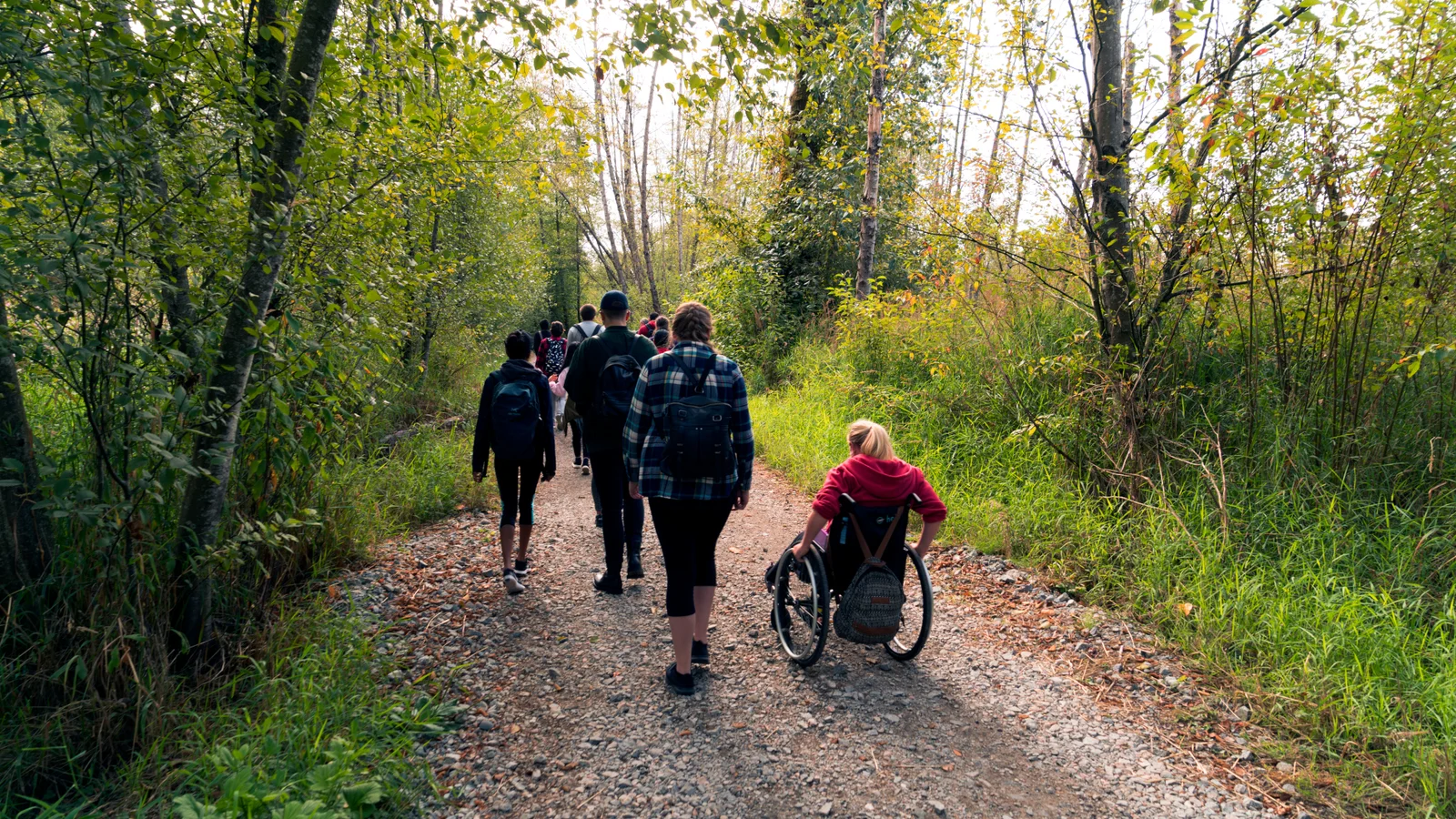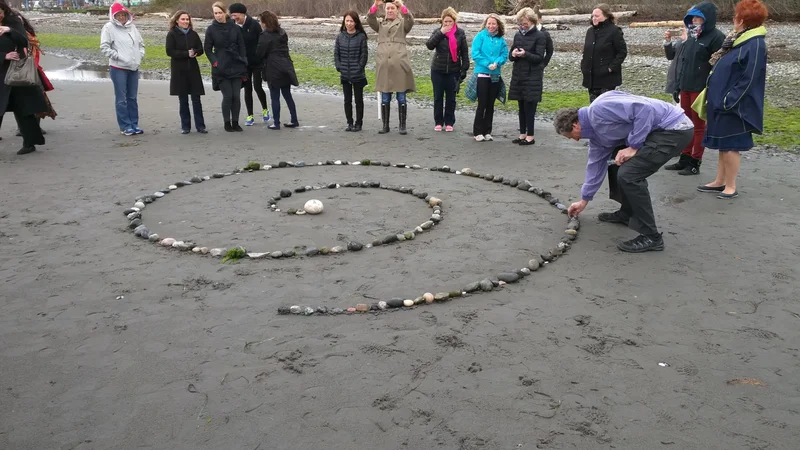For information about workshops and training offered by Ross Laird, please visit this page or contact Ross directly.
Working with groups is immensely rewarding and uniquely challenging, requiring of the facilitator a particular blend of professional skills and self-awareness that develops only through practice and experiment. This professional development series explores theoretical and experiential approaches to group work, focusing on facilitation skills, ecological dynamics, interpersonal relationships, and leadership styles. It incorporates a trauma-informed perspective, emphasizing ecological learning approaches for skill development in group settings.
The sessions highlight the importance of facilitator neutrality, structured session management, and scaffolding for individual support. The overall goals are to assist participants in enhancing their self-awareness, improving their active sensing and responsiveness, and learning practical skills to apply collaboration, community-building, and creative problem-solving.
Session 1: Overview and Environment as Teacher
Overview: Integrates trauma-informed principles into group dynamics and professional development. Focuses on environmental context for skill development, using the constraints-led and ecological learning approaches.
Key Topics: Designing activities for real-life scenarios in trauma recovery, self-regulation, and wellbeing; understanding group dynamics; adapting to individual needs within the group setting.
Skills Developed: Creating context-relevant activities; understanding and applying trauma-informed principles in group settings; adapting facilitation techniques to individual and group needs.
Session 2: Facilitator Neutrality and Group Structure
Overview: Emphasizes the importance of facilitator neutrality, structured sessions, and managing group dynamics through a trauma-informed lens.
Key Topics: Effective facilitation strategies; enforcing group rules and norms while cultivating emotional safety and respect; managing appropriate disclosures; facilitating private discussions for individual attention; reflections on the crucial role of personal development.
Skills Developed: Maintaining facilitator neutrality, managing group dynamics, enforcing rules sensitively, conducting meaningful private discussions, reflective practice.
Session 3: Scaffolding and Session Management
Overview: Focuses on scaffolding for individual support between group sessions, maintaining neutrality, and managing emotional responses in a group setting.
Key Topics: Private conversations for individual support, pre-session preparation, facilitator neutrality during sessions, managing group dynamics, recognizing when individuals may not be suited for group participation.
Skills Developed: Individualized support through scaffolding, emotional intelligence in group management, application of trauma-informed principles in real-time facilitation, recognizing and addressing group suitability.



